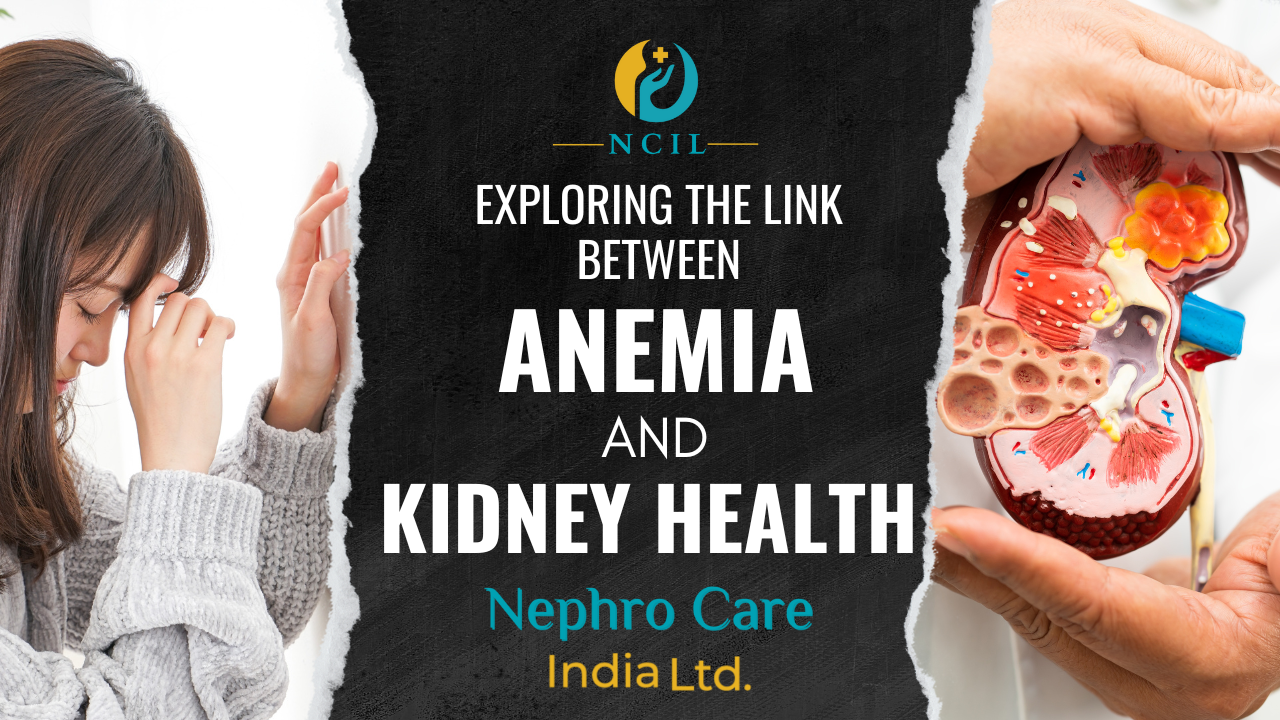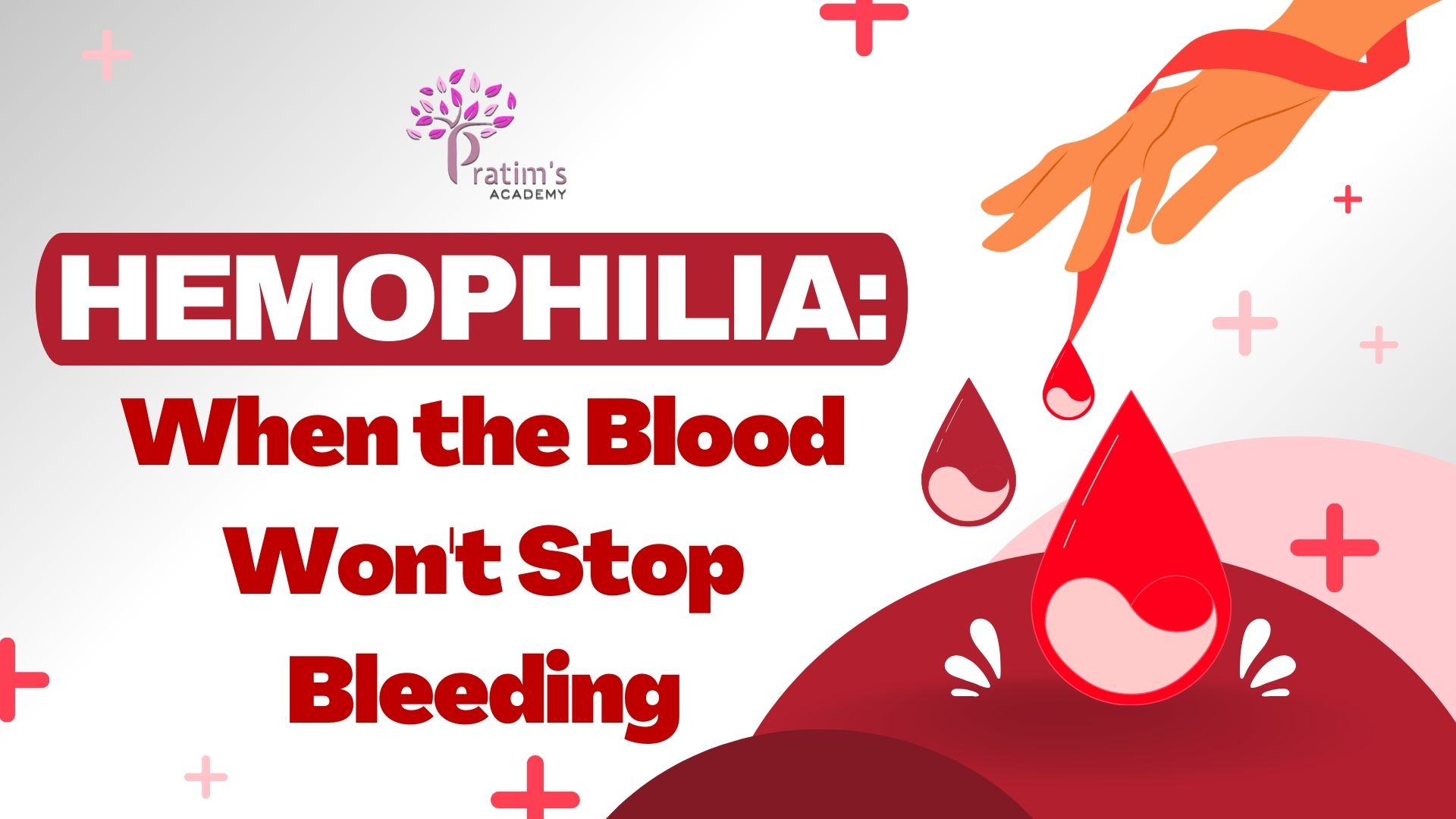
- 716
- 0
Exploring the Link Between Anemia and Kidney Health
Anemia is a condition that affects millions of people worldwide, characterized by a deficiency in red blood cells or hemoglobin in the blood, resulting in reduced oxygen-carrying capacity. In this blog, we’ll explore into the intricate relationship between anemic patients and CKD, its prevalence, complications, symptoms, diagnosis, and treatment options.
What is Anemia?

Anemia is a medical condition where there is a decrease in the number of red blood cells or a decrease in the concentration of hemoglobin in the blood. Hemoglobin is a protein in red blood cells that carries oxygen throughout the body. When the blood doesn’t have enough red blood cells or hemoglobin, the body’s tissues and organs may not get enough oxygen, leading to symptoms such as fatigue, weakness, and shortness of breath.
What are the Complications in Someone with CKD?
Anemia in CKD can lead to several complications, including:

- Fatigue, dizziness, shortness of breath and weakness, impacting daily activities and quality of life.
- Increased risk of cardiovascular diseases such as heart failure and myocardial infarction.
- Worsening of kidney function and progression of CKD.
- Impaired cognitive function and decreased mental sharpness.
- Reduced exercise capacity and physical endurance.
What Causes Anemia in CKD?
Anemia in chronic kidney disease primarily occurs due to decreased production of erythropoietin by the kidneys. Other contributing factors may include:

- Iron deficiency: CKD can interfere with the body’s ability to absorb and utilize iron, leading to iron deficiency anemia.
- Inflammation: Chronic inflammation associated with CKD can disrupt normal red blood cell production.
- Nutritional deficiencies: Poor diet and inadequate intake of essential nutrients such as iron, vitamin B12, and folate can contribute to anemia.
- Blood loss: Dialysis and other medical procedures in CKD patients can lead to blood loss, exacerbating anemia.
How Do Health Care Professionals Diagnose Anemia in CKD?
Common diagnostic tests may include:
- Complete blood count (CBC) to measure hemoglobin levels and red blood cell count.
- Serum iron studies to assess iron levels in the blood.
- Stool OBT test
- Ferritin and transferrin saturation tests to evaluate iron stores.
- Vitamin B12 and folate levels to rule out deficiencies.
- Bone marrow biopsy (in rare cases) to assess red blood cell production.
How Do Health Care Professionals Treat Anemia in CKD?
Depending on the severity and underlying factors, treatment options may include:
- Erythropoiesis-stimulating agents (ESA) to stimulate red blood cell production.
- Iron supplementation to correct iron deficiency.
- Vitamin B12 and folate supplements if deficiencies are identified.
- Blood transfusions in severe cases or acute complications.
- Kidney transplant for end-stage kidney disease patients.
Can I Prevent Anemia in CKD?
Certain measures can help reduce the risk and delay its onset, including:
- A balanced diet rich in iron, vitamin B12, folate, and other essential nutrients can support red blood cell production and help alleviate anemia symptoms.
To know more about nutritious value, feel free to contact with our Diet team👇
- Following prescribed treatment plans for CKD and associated conditions.
- Regular monitoring of kidney function and hemoglobin levels.
- Avoiding smoking and excessive alcohol consumption, which can worsen kidney function and anemia.
Conclusion
Anemia is a common complication of chronic kidney disease, significantly impacting the health and well-being of affected individuals. Understanding the causes, symptoms, complications, diagnosis, and treatment options is crucial for effective management and improved outcomes. By raising awareness, promoting early detection, and supporting ongoing research efforts, we can strive towards better management and prevention of anemia in individuals living with chronic kidney disease.
For further insights into the connection between Anemia and Chronic Kidney Disease, click on the image below and subscribe to our channel. 🩸

Comment
Check Your EGFR
***We Promise, no spam!






